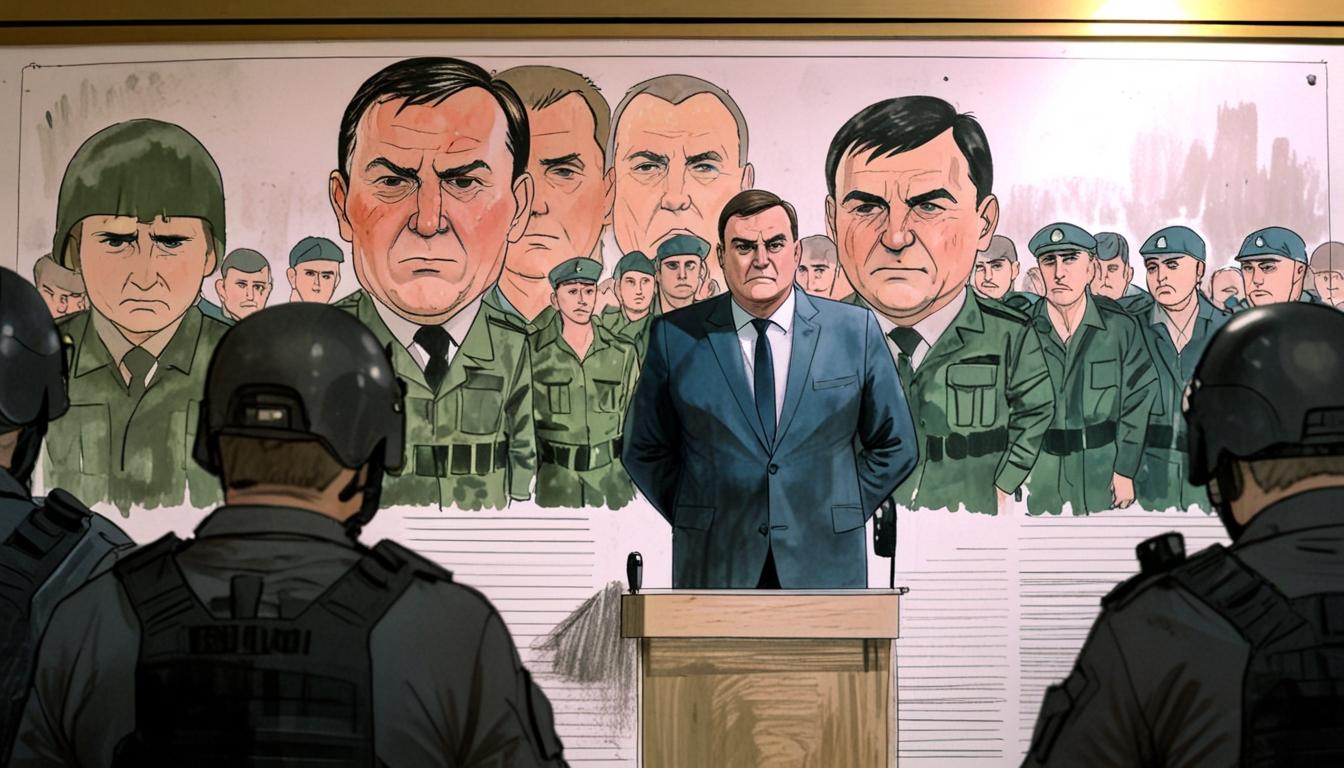The top international official responsible for overseeing peace in Bosnia has taken decisive action against the ruling political parties in the Serb-controlled entity of Republika Srpska by cutting all budgetary financing. This move, announced on Thursday by Christian Schmidt, the High Representative for Bosnia and Herzegovina, intensifies pressure on the pro-Russian president of Republika Srpska, Milorad Dodik, who is sought by authorities over his separatist agenda.
Christian Schmidt, a German diplomat appointed to monitor the implementation of the Dayton Peace Agreement, which ended the Bosnian War from 1992 to 1995, stated that the leadership of Republika Srpska was undermining the fundamental principles of the peace accord. His announcement came a day after an attempt by Bosnian state police to detain Dodik was thwarted by armed Serb police forces loyal to the entity's government.
The Office of the High Representative (OHR), which Schmidt leads, possesses extensive authority to impose laws and make changes in Bosnia. Dodik faces charges for actions that reportedly violate the country’s constitution by enacting laws designed to increase the autonomy of Republika Srpska. Bosnian courts issued an arrest warrant for Dodik in March after he failed to appear for questioning related to these allegations.
Schmidt underscored that the suspension of financial support aimed to “support the efforts by institutions of Bosnia-Herzegovina to counter the ongoing flagrant attacks against the fundamental principles of the Dayton peace agreement and the constitutional and legal order.” The targeted suspension includes funding for Dodik's Alliance of Independent Social Democrats and the allied United Srpska parties, and affects all levels of government across Bosnia. Schmidt warned that those who do not comply with the funding suspension will face accountability.
Reacting strongly to Schmidt's decision, Dodik denounced the move as illegal and threatened to arrest the High Representative should he attempt to enter Republika Srpska. “It is impossible to accept this. Republika Srpska will not accept it,” Dodik declared on Thursday.
The unfolding situation reflects ongoing tensions in Bosnia, nearly three decades after the war that claimed more than 100,000 lives and displaced millions. Bosnia formally seeks European Union membership, but efforts have been impeded by internal political conflicts such as these.
The failed attempt to detain Dodik took place on Wednesday when officers from the Bosnian State Investigation and Security Agency (SIPA) tried to arrest the Republika Srpska president at a government building east of Sarajevo. However, they halted the operation to avoid a potential clash with the armed Serb police present. Dodik subsequently left the building on Thursday under heavy security.
The background to the current crisis dates to the outbreak of war in 1992, when Bosnian Serbs rebelled following Bosnia and Herzegovina’s declaration of independence from the former Yugoslavia. The Serbs aimed to create closer ties or unite with neighbouring Serbia, leading to a conflict that lasted three years and reshaped the country’s political landscape.
The Independent is reporting that the developments mark a significant moment in ongoing regional instability and the complex post-war governance of Bosnia and Herzegovina.
Source: Noah Wire Services
